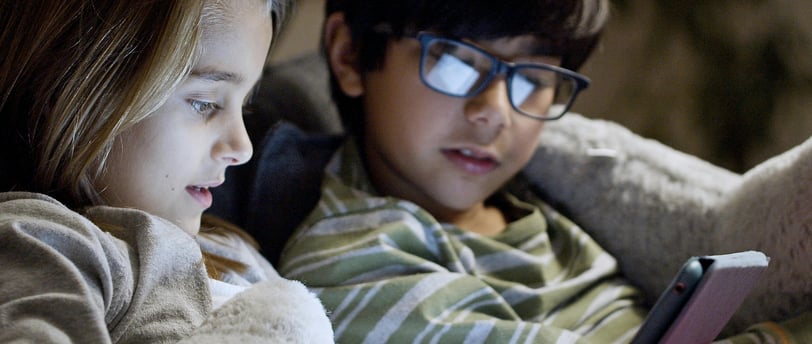Turning Screen-Time Guilt into Family Growth: Finding Balance in a Digital World
9/29/20242 min read


How to Handle Screen Time Guilt and Build Healthier Family Connections
Every parent has been there – after a long day, you’re exhausted, there’s still dinner to make, and maybe lunches for the next day. Your energy is drained, and the thought of wrangling your kids into doing something productive, like an art project or reading a book, feels overwhelming. So, when they ask for more iPad time or promise to do their homework after a few more YouTube videos, it seems easier to give in than to start another argument.
If you’ve felt this way, you're not alone. Many parents struggle with guilt over how much screen time their children are getting. We’ve all heard about the potential negative impacts of too much screen time, such as poor sleep, academic struggles, or reduced physical activity. And even though screens can offer stress relief or mood management, the guilt that comes with allowing more screen time can often outweigh those benefits.
Why Parents Feel Screen Guilt
It’s no secret that screens have become a huge part of everyday life for both adults and children. Research shows that most people use screens as a way to unwind and relax. Yet, as parents, we set screen-time rules to protect our kids, only to find ourselves breaking them regularly. Maybe you let your child watch extra TV when they’re not feeling well, or you allow video games to keep them occupied while you tackle housework. When you break your own rules, guilt kicks in – and that guilt can add even more stress to the situation.
Guilt and Family Stress
During the pandemic, as screen use increased, researchers, studied how screen-time guilt affected parent-child relationships. Unsurprisingly, 73% of parents felt some level of guilt over their child’s screen use, and nearly half felt moderate to intense guilt.
It was discovered that this guilt led to increased stress, which, in turn, reduced the parents’ satisfaction with their relationships with their children. Interestingly, the actual amount of screen time didn’t matter as much as the feelings of guilt surrounding it. In other words, it’s the guilt, not the screen use itself, that damages relationships.
Turning Guilt into Positive Action
While guilt may feel unpleasant, it can be useful. Think of it as a signal to reflect on how your family is using screens and whether adjustments are needed. Sometimes, there’s a valid reason to allow more screen time, such as comforting a sick child. Other times, it might be a sign that screen use is interfering with more important activities, like homework or family bonding.
Instead of letting guilt weigh you down, use it as motivation to make positive changes. For example, establish balanced screen-time rules that work for your family, while still allowing space for relaxation and stress relief. It’s also important to remember that not all screen use is bad – some screen content can promote learning, social connections, and even inspire creativity.
By acknowledging your feelings of guilt and using them to guide healthier screen habits, you can find a balance that supports both your family’s wellness and your relationship with your kids.
At Red Orange Club, we understand the struggles of modern parenting, and our Family Fun Box is designed to help families spend more quality time together, screen-free. Whether it’s games, crafts, or activities, we’re here to support your family in creating lasting memories, beyond the screens.
Join Red Orange Club family on social media for fun!
Sign up now for latest news and updates!
© 2024. All rights reserved.
Contact us at
info@redorangeclub.com
